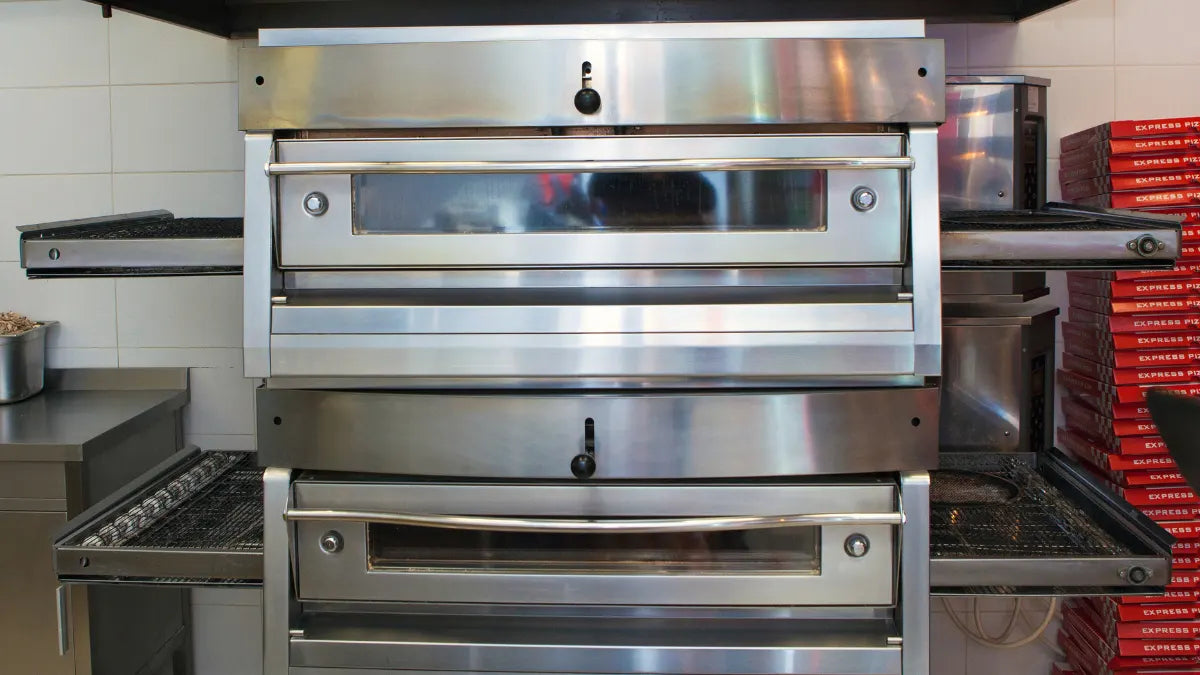Lebensmittelseidenpapier ist ein wesentlicher Bestandteil moderner Lebensmittelverpackungen. Es sorgt nicht nur für Hygiene und Sicherheit, sondern verbessert auch die optische Attraktivität der Lebensmittelpräsentation. Von Fast-Food-Restaurants bis hin zu gehobenen Bäckereien wird Lebensmittelseidenpapier häufig zum Verpacken, Schützen und Bewerben von Lebensmitteln verwendet. In diesem Artikel erfahren Sie, was Lebensmittelseidenpapier ist, welche verschiedenen Arten es gibt und wie es von führenden Marken verwendet wird, um unvergessliche Kundenerlebnisse zu schaffen. Was ist Lebensmittelseidenpapier und welche Arten gibt es?
Grundlegendes zu Seidenpapier für Lebensmittel
Lebensmittel-Seidenpapier ist eine Art speziell behandeltes Papier, das für den direkten Kontakt mit Lebensmitteln konzipiert ist. Es entspricht den Vorschriften zur Lebensmittelsicherheit und sorgt dafür, dass die Lebensmittel frisch und unverunreinigt bleiben. Unternehmen verwenden dieses Papier häufig zum Verpacken von Lebensmitteln, zum Auskleiden von Behältern und zum Aufbringen einer Markenschicht.
Hauptmerkmale von Lebensmittel-Seidenpapier
- Lebensmittelsicherheit : Da es aus ungiftigen Materialien hergestellt ist, ist es sicher für den direkten Kontakt mit allen Arten von Lebensmitteln.
- Vielseitigkeit : Wird zum Verpacken, Trennen von Lebensmittelschichten und Auskleiden von Kartons oder Tabletts verwendet.
- Anpassbarkeit : Wird oft mit Logos und Designs bedruckt, wodurch die Verpackung zu einer Branding-Gelegenheit wird.
Bemerkenswerte Benutzer
Marken wie Starbucks und Subway verwenden lebensmittelechtes Seidenpapier zum Verpacken von Sandwiches, Gebäck und Keksen. Diese Unternehmen verlassen sich auf individuelle Designs, die ihre Marke widerspiegeln und gleichzeitig die Lebensmittelsicherheit gewährleisten.


Arten von Seidenpapier für Lebensmittel
Es gibt verschiedene Arten von Lebensmittel-Seidenpapier, die jeweils für bestimmte Lebensmittelverpackungsanforderungen geeignet sind. Hier ist ein genauerer Blick:
Lebensmittelsicheres Seidenpapier
- Ungiftig und für den Kontakt mit Lebensmitteln zertifiziert.
- Wird häufig zum Verpacken von Produkten wie Sandwiches und Backwaren verwendet.
- Beispiel: Panera Bread verwendet zum Verpacken seiner handwerklich hergestellten Brote und Gebäcke lebensmittelechtes Seidenpapier.
Druckpapier in Lebensmittelqualität
- Kombiniert Lebensmittelsicherheit mit anpassbaren Druckoptionen.
- Ideal für Unternehmen, die ihre Verpackungen mit Logos oder Designs kennzeichnen möchten.
- Beispiel: McDonald’s verwendet bedrucktes Seidenpapier für seine Burger und Wraps und macht so Werbung für die ikonischen goldenen Bögen.
Säurefreies Seidenpapier
- Frei von Chemikalien, die empfindlichen Lebensmitteln schaden könnten.
- Perfekt für die Premiumverpackung von Artikeln wie Schokolade oder Süßwaren.
- Beispiel: Boutique-Chocolatiers wie Godiva verwenden säurefreies Seidenpapier zum Verpacken ihrer Gourmetprodukte.
Deli Papier
- Fettbeständig und langlebig, daher ideal zum Verpacken von Wurst, Sandwiches und Burgern.
- Beispiel: Whole Foods Market verwendet an seinen Sandwich-Theken Feinkostpapier, um für ein sauberes und professionelles Erscheinungsbild zu sorgen.
Pergamentpapier
- Behandelt, um Öl und Feuchtigkeit zu widerstehen.
- Beliebt für frittierte oder fettige Speisen wie Donuts oder Pommes.
- Beispiel: Krispy Kreme verwendet für seine berühmten glasierten Donuts Pergamentpapier.
Wachspapier
- Für zusätzliche Feuchtigkeitsbeständigkeit mit Wachs beschichtet.
- Wird häufig zum Verpacken klebriger Gegenstände wie Süßigkeiten oder Käse verwendet.
- Beispiel: Käsefachgeschäfte wie Murray's Cheese verwenden Wachspapier, um ihre Produkte frisch zu halten.

Kraftpapier
- Biologisch abbaubar und umweltfreundlich, auch in lebensmittelechter Ausführung erhältlich.
- Wird oft für rustikale oder nachhaltige Verpackungsdesigns verwendet.
- Beispiel: Chipotle verpackt seine Burritos in Kraftpapier, um sein Engagement für Nachhaltigkeit hervorzuheben.
Silikonpapier
- Antihaftbeschichtet und hitzebeständig, ideal zum Backen und für Anwendungen mit hohen Temperaturen.
- Beispiel: Bäckereien wie Le Pain Quotidien verwenden Silikonpapier zum Backen von Gebäck und Brot.
Aluminiumbeschichtetes Papier
- Bietet Wärmespeicherung und Isolierung für heiße Speisen.
- Beispiel: Domino's Pizza verwendet für seine warmen Sandwiches und Beilagen aluminiumbeschichtetes Papier.
Pflanzenfaserpapier
- Hergestellt aus umweltfreundlichen, pflanzlichen Materialien.
- Eine nachhaltige Option für umweltbewusste Unternehmen.
- Beispiel: Pret A Manger verwendet Pflanzenfaserpapier für seine Wraps und Salate.
Individuelles Seidenpapier in Lebensmittelqualität von ilovewrapper
Für Unternehmen, die ihre Verpackungen aufwerten möchten, bietet ilovewrapper hochwertiges, individuell gestaltetes Seidenpapier in Lebensmittelqualität. Durch die Kombination von Lebensmittelsicherheit mit hochwertigem Druck hilft ilovewrapper Unternehmen dabei, Verpackungen zu erstellen, die einen bleibenden Eindruck hinterlassen.
Warum führende Marken sich für ilovewrapper entscheiden
- Zertifizierte lebensmittelsichere Materialien : Jedes Blatt Seidenpapier erfüllt strenge Lebensmittelsicherheitsstandards.
- Benutzerdefinierte Druckoptionen : Fügen Sie Ihr Logo, Ihre Designs oder Werbebotschaften hinzu, um sich von der Konkurrenz abzuheben.
- Umweltfreundliche Optionen : ilovewrapper bietet biologisch abbaubare Optionen wie Kraftpapier und Pflanzenfaserpapier, um Nachhaltigkeitsziele zu erreichen.
- Vielseitige Lösungen : Egal, ob Sie ein Croissant verpacken oder eine Feinkostschale auslegen, ilovewrapper hat die perfekte Lösung.
Auswirkungen auf die reale Welt
Marken, die ilovewrapper verwenden, berichten von einer höheren Kundenzufriedenheit dank verbesserter Präsentation und erhöhter Markensichtbarkeit. Egal, ob Sie ein Café oder eine Feinkostbäckerei betreiben, ilovewrapper kann Ihre Verpackung in ein Marketinginstrument verwandeln.
Warum ist Seidenpapier für Lebensmittel so wichtig?
Die Bedeutung von Seidenpapier für Lebensmittel geht über die einfache Verpackung hinaus. Es:
- Sorgt für Hygiene und verhindert Kontaminationen.
- Verbessert die optische Attraktivität von Lebensmitteln.
- Stärkt die Markenidentität durch individuelle Designs.
Top-Marken wie Starbucks und Chipotle haben dies verstanden und verwenden Lebensmittel-Seidenpapier als Schlüsselelement ihrer Strategie zur Kundenerfahrung.
So wählen Sie das richtige Seidenpapier für Lebensmittel aus
Beachten Sie bei der Auswahl von Seidenpapier für Lebensmittel:
- Lebensmittelart : Fettige oder feuchte Lebensmittel benötigen Pergament- oder Wachspapier, während für trockene Lebensmittel normales lebensmittelechtes Papier gut geeignet ist.
- Branding-Anforderungen : Individuell bedruckte Optionen wie die von ilovewrapper können den Bekanntheitsgrad der Marke steigern.
- Umweltziele : Für umweltbewusste Unternehmen ist biologisch abbaubares oder pflanzliches Faserpapier eine ausgezeichnete Wahl.
FAQs zu Frischhalte-Seidenpapier
Ist Seidenpapier für die Verwendung mit Lebensmitteln unbedenklich?
Ja, Seidenpapier für Lebensmittel entspricht den einschlägigen Vorschriften für Lebensmittelkontaktmaterialien (wie FDA, EU-Normen). Es wird in der Regel aus lebensmittelechten Rohstoffen hergestellt und ist ungiftig und unbedenklich.
Ist Seidenpapier für Lebensmittel recycelbar?
Es kann recycelt werden, aber Papier mit Öl- oder Wachsbeschichtung ist schwieriger zu recyceln. Es wird empfohlen, für den Gebrauch von Lebensmitteln umweltfreundliches Seidenpapier zu verwenden.
Was ist der Unterschied zwischen Seidenpapier für Lebensmittel und normalem Papier?
- Höhere Öl- und Wasserbeständigkeit.
- Verwenden Sie ungiftige Tinten und Klebstoffe.
- Erfüllen Sie die Standards der Lebensmittelsicherheit.
Kann es für Tiefkühlkost verwendet werden?
Einige Seidenpapiere für Lebensmittel (wie Wachspapier oder spezielles Papier für Tiefkühlkost) können in Tiefkühlumgebungen verwendet werden. Sie müssen jedoch das Etikett des jeweiligen Produkts prüfen.
Kann es individuell bedruckt werden?
Ja, Seidenpapier von ilovewrapper und viele andere Hersteller bieten individuelle Druckdienste an.
Beeinträchtigt es den Geschmack von Lebensmitteln?
Hochwertiges Seidenpapier für Lebensmittel beeinträchtigt weder den Geschmack noch das Aroma von Speisen, da seine Rohstoffe und Zusatzstoffe streng geprüft werden.
Abschluss
Seidenpapier für Lebensmittel ist ein unverzichtbares Hilfsmittel für die Lebensmittelverpackung und bietet sowohl praktische als auch ästhetische Vorteile. Von fettdichtem Papier bis hin zu individuell bedrucktem Lebensmittelpapier gibt es für jeden Bedarf eine Lösung. Führende Marken wie Starbucks , Chipotle und Panera Bread zeigen, wie Seidenpapier für Lebensmittel das Kundenerlebnis verbessern und gleichzeitig Nachhaltigkeit und Markenidentität fördern kann.
Wenn Sie Ihre Verpackung auf die nächste Stufe heben möchten, vertrauen Sie darauf, dass ilovewrapper hochwertiges, lebensmittelsicheres und individuell anpassbares Seidenpapier liefert, das perfekt zu Ihrer Marke passt. Machen Sie Ihre Verpackung noch heute zu einem starken Statement!






Aktie:
So drucken Sie auf Seidenpapier
Individuelles Seidenpapier mit Logo: Heben Sie Ihre Marke mit personalisierter Verpackung hervor